Why should I have a planned giving conversation with my client?
Guide for financial advisors
Some advisors are reluctant to bring up the topic of planned giving with their clients for fear of offending them or intruding on their privacy. Yet, avoiding these conversations can be detrimental to their interests and the interests of the wider community.
Surveys have shown that financial professionals play an important role in the legacy giving process. These types of donations can be excellent solutions for donors and advisors alike.
Why should I talk to my client about charitable giving?
When addressing the issue of financial and estate planning, it is in your client’s best interest to know which options are open to them. They depend on you to help them develop a forward-thinking strategy that meets the needs of their family, lessens their tax burden and aligns with their beliefs and principles.
The tax benefits of planned giving can help make it one of the cornerstones of your client’s strategy. What’s more, some types of gifts, such as a gift by will, make it possible to leave a personal legacy that is much more than a matter of dollars and cents. It is a way for someone to share their beliefs with their family and loved ones without compromising their financial security.
In all likelihood, your client will be grateful that you have brought up the matter and provided them with an opportunity to give back to society by making a contribution to the causes that are important to them. And, in so doing, you will also feel like you have helped to make a difference.
By incorporating questions about charitable giving into your routine practices, you will be enhancing the range of services you offer and maximizing your clients’ satisfaction.
Is it really up to me to bring up the issue of charitable giving with my client?
You play a key role in shaping your client’s philanthropic outlook and in implementing their vision. A CROP poll conducted in 2017 for Leave a Legacy Québec showed that professionals remain an important and valued source of information for donors when it comes to planned giving.
My client has never mentioned any interest in a charitable cause.
The fact that a client has never broached the topic of charitable giving doesn’t mean they’re not interested. It may simply be a result of a lack of information. By being proactive, you may be surprised to find out the number of people who are intrigued by the idea of giving back or honouring the memory of someone who has made a difference in their life.
Some clients think they are not wealthy enough to make a planned gift and have therefore not explored this avenue. You can debunk this myth and support them in their objectives by presenting various donation options suited to their personal and financial profile – and all obligation-free!
How should I go about approaching the topic of planned giving with my client?
Keep in mind that your goal is to get your client to think about the various possibilities open to them rather than have them decide on a specific course of action right away.
You might want to start by helping them identify their core values and aspirations.
For example, if you know that your client has been a generous donor to certain charities in the past, you could ask them if they would be interested in including these organizations in their will to build on this support. You can further explain the financial and tax benefits of this decision.
If you are not sure about their past donations, you might want to start the conversation by asking them if they have given any thought to what will become of their assets if their spouse or children do not survive them and whether they would be interested in leaving a part of their estate to a charitable organization.
How do I get my client to consider the possibility of a bequest or another type of planned giving?
You can encourage them to give some serious thought to the legacy they want to leave for the next generation. You could start by asking questions like these:
- Would their three children object to a 1.5% reduction in the amount they inherit, knowing that 10% of the estate was going to one or several charities (such as the HEC Montréal Foundation)?
- What are the values your client wishes to convey their children? What do they want to be remembered for?
You might be more comfortable opting for a more general and less personal approach:
- People who play an active role in their community often decide to remember a favourite charity or charities in their will. It’s a way for them to share their success with others and thank an organization that has had a positive influence on their life, which is what many HEC Montréal alumni feel about their alma mater. Have you ever thought about doing the same with a current or planned gift?
- There are many reasons for choosing a planned giving solution, including the tax benefits it can represent. In all likelihood, there is a hefty tax bill awaiting you and/or your estate at one point in the future. Charitable giving is one way of alleviating this tax burden and reflecting your values at the same time.
What can I do if my client isn’t sure about which cause(s) to support?
If you client has a clearly defined set of philanthropic goals but is hesitating about which charities to give to, steer your conversation toward their general concerns and priorities. What values are important to them? What activities are they engaged in? What organizations have helped shape the person they are today? HEC Montréal may be the answer to this last question for many alumni.
If your client seems interested in pursuing this avenue but is not ready to make a decision just yet, give them some time to mull things over, talk to their spouse and children, and do some homework about the various charities whose work is aligned with their values.
When should I talk to my client?
The best time to explore donation opportunities is usually when people are taking a closer look at their affairs, finances and personal matters. This often coincides with their tax or estate planning, the sale or transfer of shares or other securities where there has been a significant gain in value, the sale of a company, the presence of a substantial amount of money in an RRSP, the sale of a piece of real estate or a milestone event your client would like to commemorate.
My client would like to give to the HEC Montréal Foundation, but considering their personal and financial situation, they have a limited amount of funds at their disposal. Is there a minimum donation level required by the HEC Montréal Foundation when making a bequest?
Any donation, whether it benefits the HEC Montréal Foundation right away or somewhere down the road, is greatly appreciated, no matter what the amount, and will have a major impact on the future of HEC Montréal and its students. We are grateful for each and every gift, big or small.
My client has some pretty specific ideas about where they want their gift to go. Can they direct their donation to a specific purpose?
Your client can direct their donation to a specific area of interest or project at HEC Montréal that is important to them. We would be happy to work with you to determine the most meaningful solution for your client.
Whether their gift is made during their lifetime or after they pass away, your client can, in accordance with the Foundation’s policies, set up an endowment fund or a long-term fund to leave an enduring legacy. A personalized endowment or non-endowment fund can be named after you, your family or someone else who has played a significant role in their life (parent, mentor, professor, etc.).
Please contact the HEC Montréal Foundation if you or your client wish to learn more about this option.
My client is interested in lending their support to the HEC Montréal Foundation, but they would like some suggestions to guide them in their decision. Can you help?
We would be happy to provide further information about the Foundation’s and HEC Montréal’s priorities based on your client’s specific areas of interest.
If my client wants to include the HEC Montréal Foundation in their will, what’s the best way to word their wishes?
The HEC Montréal Foundation can provide you with sample wording to help you prepare a bequest.
We suggest that the wording be adapted to your client’s needs and written in a way that reflects their values. Upon request, we can also prepare a separate document indicating their specific wishes in detail. This is not legally binding and can be modified by the donor at any time.
Although we understand that some people prefer not to talk directly to the Foundation about their gift, we do encourage donors or their advisors to contact us to discuss these arrangements.
My client has told me that they have already made a provision in their will for the HEC Montréal Foundation. What should they do now?
If your client has included the HEC Montréal Foundation in their legacy giving strategy, please let the Foundation know by filling out the form “Information confidentielle – Lettre d’intention – Don testamentaire ” and returning it to us. Contact us for a copy of the form. We are committed to recognizing them for their altruism and ensuring their wishes are honoured.
Can my client revise their will if there is a change in their personal situation?
We understand that a donor’s personal and financial status may change over time. They can revise their will whenever they like and retain full control over their assets.
When happens if the project or area of interest my client directed their donation to no longer exists when comes time to honour their bequest or gift of life insurance?
If a donation cannot be used for the purpose stipulated by the donor and there is no other paperwork (will, codicil, agreement, etc.) drawn up in this regard, the funds may be used for other initiatives, as decided by the Foundation’s board of directors. The board will take your client’s original wishes into account when making this choice.
My client’s bequest or gift of life insurance will be honoured only after their death. Will their donation still be acknowledged during their lifetime?
The HEC Montréal Foundation believes strongly in recognizing every donation we receive, whether it is immediate or deferred (as is the case for a gift of life insurance or a bequest). We have set up a donor recognition program to thank all those who help us grow and thrive.
We have created Société Héritage to acknowledge the contribution of donors who have included the Foundation in their will or insurance policy. So, yes, we will be sure to express our gratitude to your client right away.
My client wants to give anonymously. Is this an option?
We understand that some people would like their gift to remain anonymous and we will respect their wishes in this regard. Some donors prefer total anonymity, while others simply wish to avoid having their name appear on our website, in our annual reports and elsewhere. In the latter case, they may still want to be invited to meetings with the Foundation’s and HEC Montréal’s administrators. We contact each donor to determine their desired level of anonymity.
When’s the best time to have a planned giving conversation?
When making tax or estate planning arrangements
The best time to talk about planned giving strategies is while you are reviewing your client’s estate planning needs. If your client is in the top tax bracket, marginal tax rates over 50% may be applicable the year they die. One of the strategies for reducing the amount of tax due is to integrate charitable giving into their estate planning. The added benefit of estate planning for a client is the opportunity to give back to society and to make sure their values live on through their donations.
When selling or transferring publicly trade securities that have accrued capital gains
Your client owns stocks that have appreciated significantly in value and is looking for a way to offset the corresponding tax obligations. This is an ideal moment to suggest creating a fund and donating these stocks to the fund. They will then be entitled to a tax deduction equivalent to the fair market value of the donated shares and avoid the capital gains tax that would have been applicable had they sold the stocks.
When selling a company
Your client owns high-value shares in a company that is about to be sold. You can suggest a planned giving strategy to reduce the capital gains tax that would otherwise be applicable and appeal to their philanthropic nature at the same time.
If your client has a significant amount of money in RRSPs or RRIFs
Your client has a lot of money invested in retirement funds and would like to leave assets to their family and a charity or charities. You can help them maximize the amount received by working with them to determine the best allocation strategy to reduce the corresponding tax liability. The result? More money for their loved ones and the causes they believe in and an enduring philanthropic legacy.
When selling real estate
Your client is looking to simplify their life by selling off pieces of real estate they own. The resulting tax impact of these transactions can be reduced by a charitable gift.
To commemorate an important moment in your client’s life
Your client wants to celebrate a personal or professional milestone (a job promotion, a significant birthday or anniversary, a child’s graduation, etc.) or honour the memory of a loved one. You can suggest creating a fund and working with them to review the various types of donations that will help them achieve their objectives, fulfill their needs and minimize their tax burden.
Finance and investment professionals weigh in
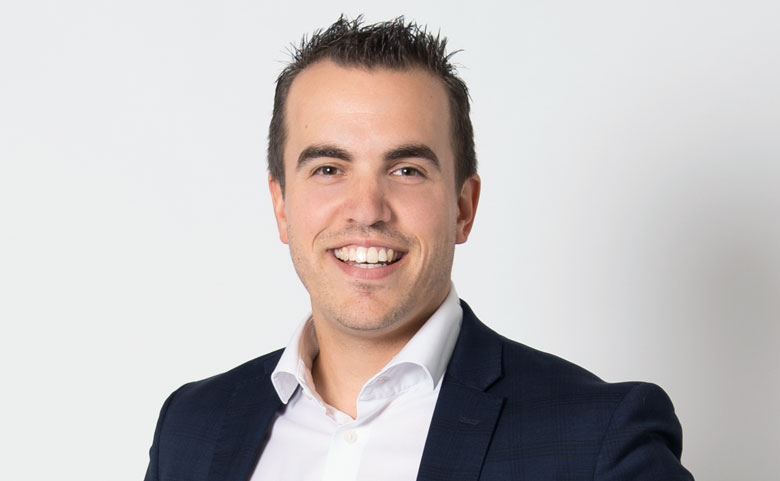
“When I’m talking to a client about their objectives, charitable giving is inevitably part of our discussion. There are many ways to make a donate that can be beneficial in a variety of situations. If I don’t bring up the topic, my client may miss out on something that could help them. I’m often surprised at how generous they can be and at how determined they are to give as much as they can. When I suggest to them a more efficient way of giving, the impact is threefold. They are glad to be able to maximize the value of their donation without increasing the cost to themselves. The charity ends up with more money in their coffers to continue their work. And, on a personal note, it’s an extremely positive move as well: it’s an extra service I can provide my clients and it helps me develop an even closer relationship with them. I see it as a logical way of being true to my own sense of stewardship. I encourage the financial advisors in my firm to do the same. It’s so rewarding!”
More testimonials
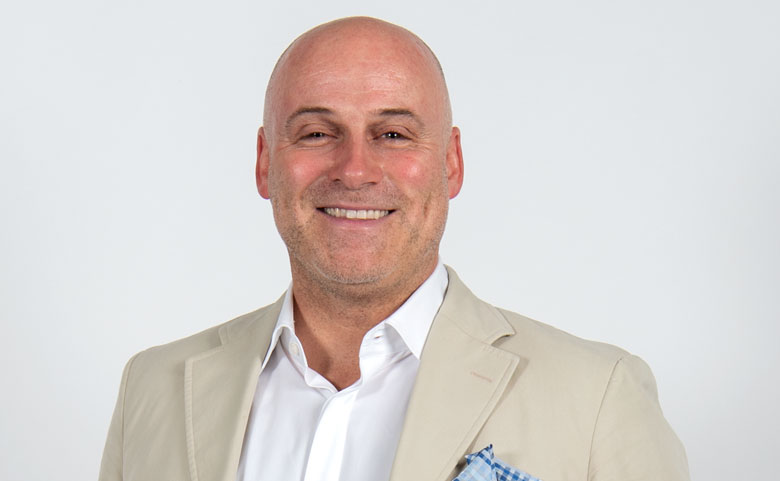
“I’ve adopted a charitable giving policy and I’ve been very happy with the results. So it only makes sense that I encourage my clients to do the same. People want to leave something behind, and my experience has shown that most of my clients fall into this category. By bringing up the idea of planned giving, I make it easier for them to think ahead and express their wishes in concrete terms. The timing of these conversations is important, naturally. They often coincide with major life events: a first job, a major career or business move (getting a promotion, selling a business, landing a big deal, etc.), the transition to an empty nest or retirement. People often feel grateful toward the source of their personal or professional success at these times. I see this as a unique way of commemorating these milestones for my clients.”
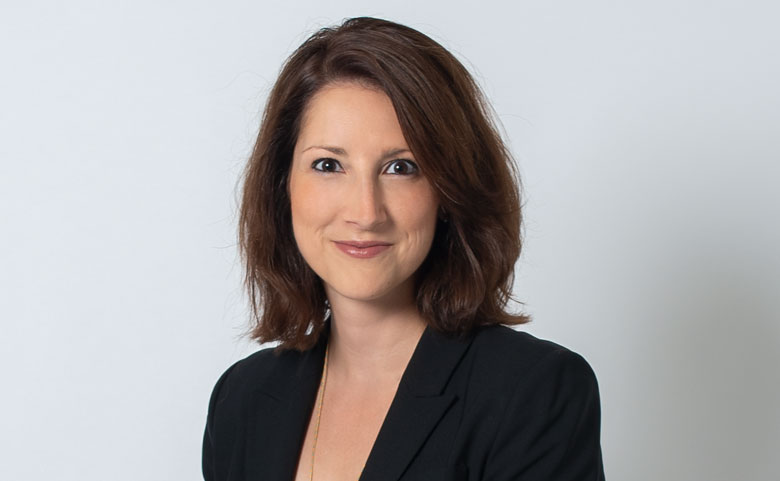
“When I broach the subject of planned giving with other professionals, I’m surprised to learn how many of them are reluctant to talk to their clients about it. They’re not sure how their clients will react. But most of them would love to know more about it. In many cases, a donation is an efficient yet little-known and little-used tax and estate planning solution. And this approach can be just as beneficial to the donor as it is to the recipient charity. In other words, it’s a win-win solution that has something for everyone.”
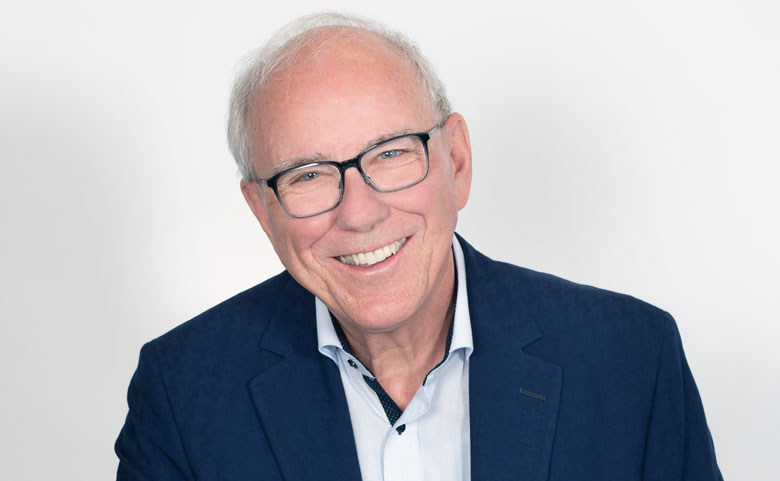
“With my clients, I embrace a holistic approach and build personal relationships with them. When I talk to them about their estate planning, charitable giving is one of the things I inevitably bring up. More often than not, I find they are ill-informed as to the benefits and opportunities that a planned gift can represent. I encourage them to think about the legacy they want to leave. I show them how a donation can help them reduce the amount of tax their estate will have to pay and how they can give back to their community without materially affecting what they leave for their family. I explain that a gift in their will is an opportunity to shine the spotlight on their family values and bring everyone together to support a shared objective. My clients and their families tell me they are grateful to learn more about this option.”
We’re here for you every step of the way!
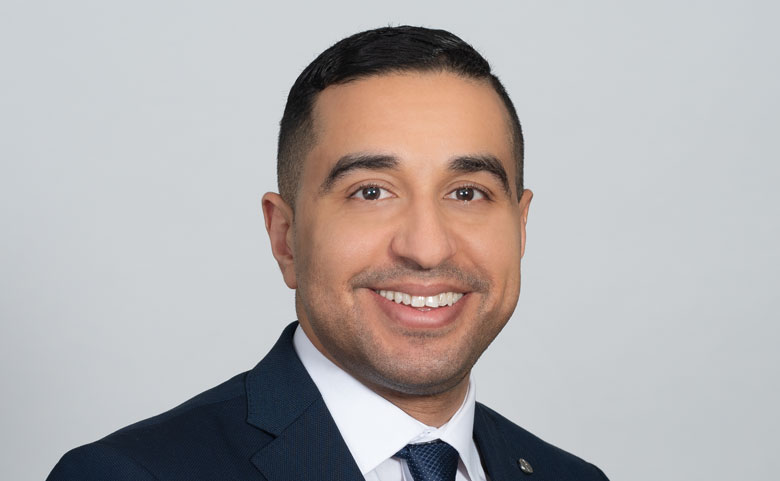
Badreddine Maamar
HEC Montréal 2007
Director – Major and Planned Gifts, and Assistant Director
Member of CAGP
Member of APFF
[email protected]
514 340-7186
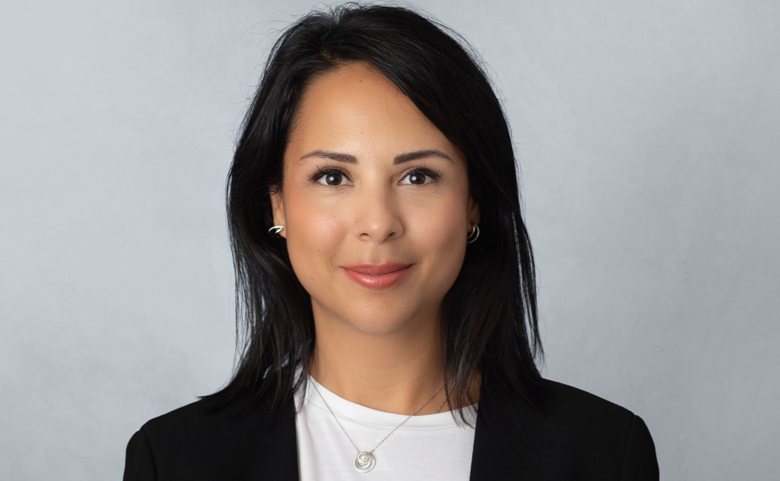
Humeyra A. Karsli
HEC Montréal 2010
Senior Advisor – Philanthropy and International Alumni Relations
Member of AFP
[email protected]
514 340-7735
The HEC Montréal Foundation’s CRA registration number is 118924158 RR0001.

